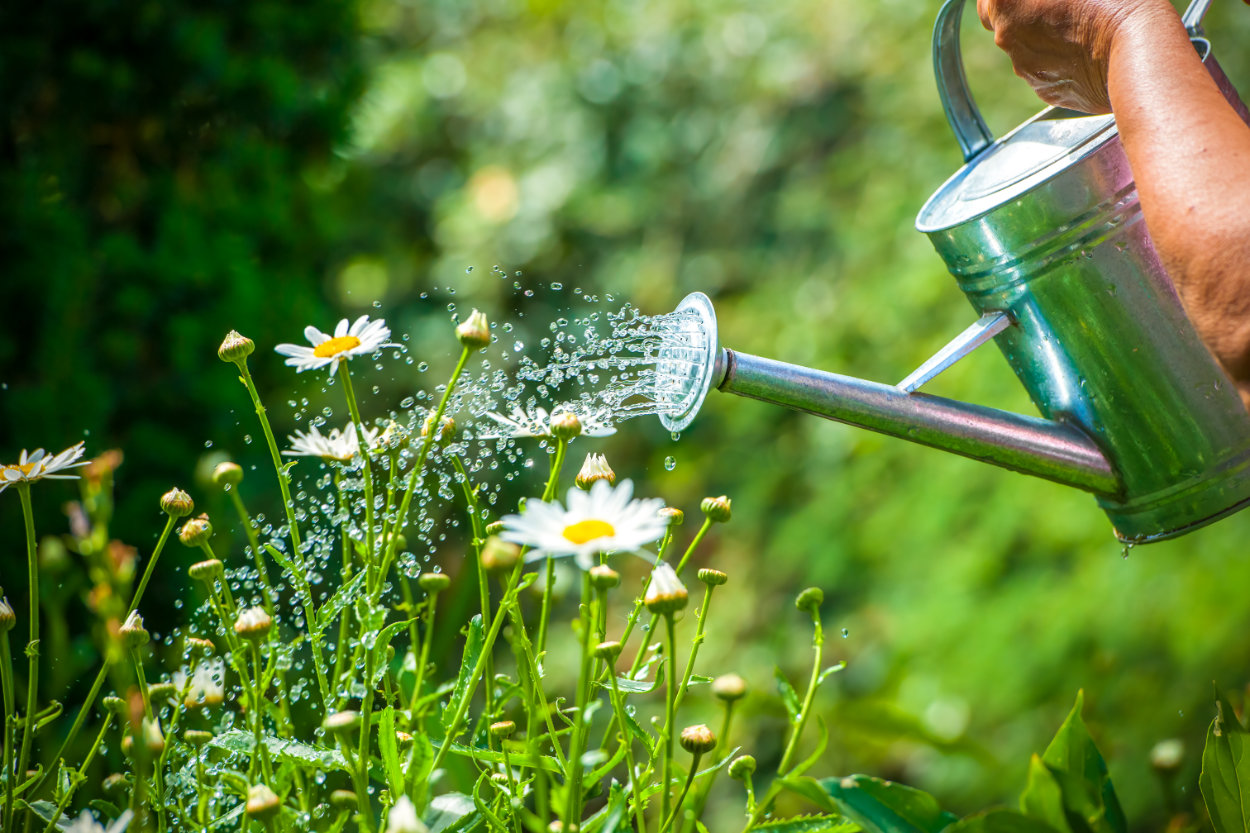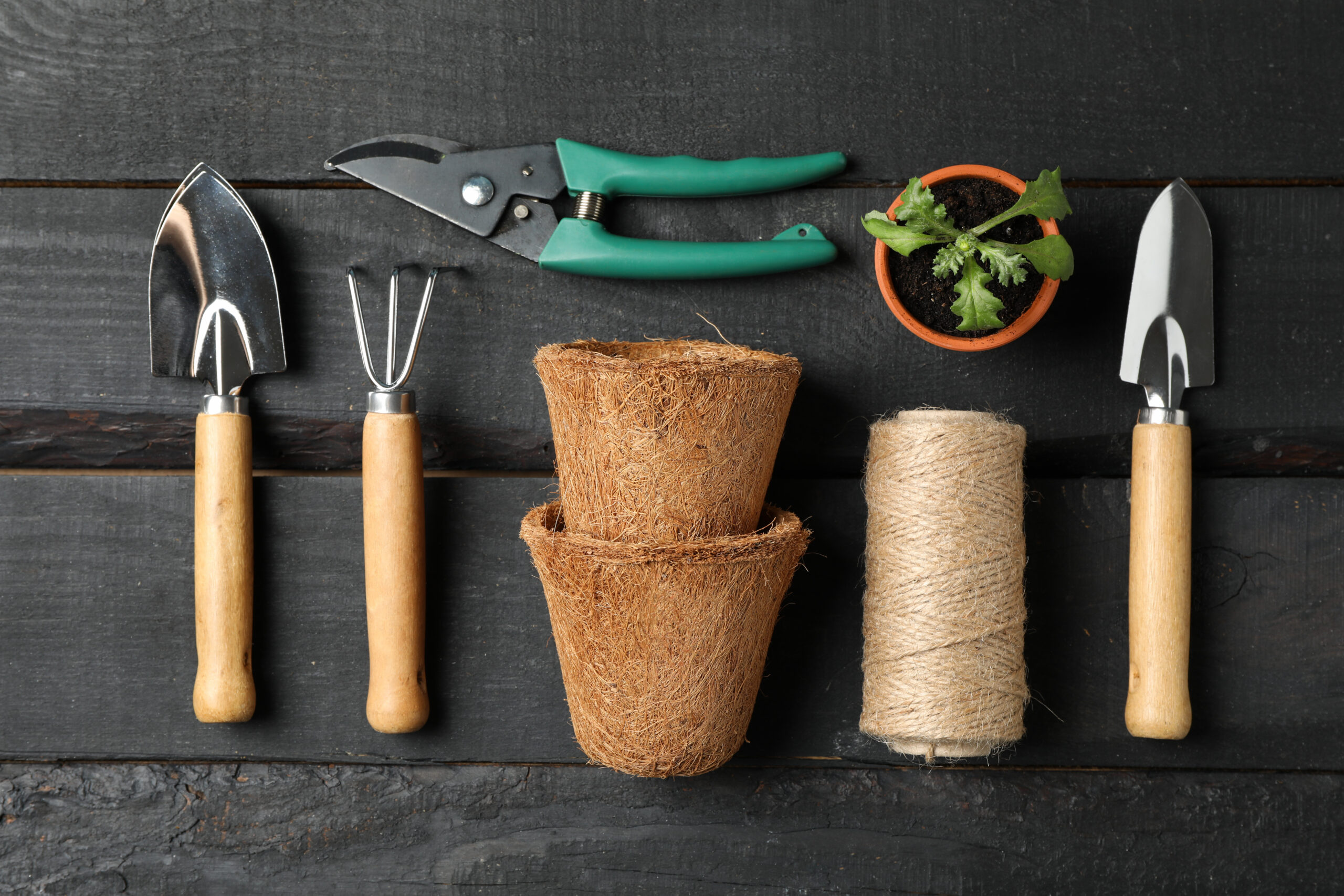Your essential garden toolkit
Shutterstock
Investing in the right tools will help your gardening and keep you growing season after season
As growing season begins in spring, there’s no better time to get started in the garden. During May you can still sow beetroot, cucumber, broccoli, carrots, courgettes and runner beans from seed, and try starter (plug-in) plants for strawberries. And if you’re interested in growing flowers, try nasturtiums, dill and cornflower to enjoy in the garden or cut for vases around the home. Whatever you choose to grow, a good toolkit will aid your practice. It’s true that you’re only as good as your tools!

Shutterstock
Must-haves
Fork Forks are used to break up and prepare compacted soil before planting. They are also helpful for digging up weeds, roots and plants that you no longer want in a particular position.
Spade Specifically for digging holes, a sturdy spade will be top of your list of garden tools.
Trowel This hand-held tool is useful for many jobs, from lifting plants from the earth to filling pots with compost.
Secateurs You’ll need secateurs to cut back, trim and tidy plants. Pick a good-quality pair and they will last for years. Remember to keep them clean and wipe dry after each use.
Rake Useful for gathering up leaves and grass, and generally keeping your lawn and beds tidy.
Labels It’s so easy to forget what you’ve sown and where. You can opt for wooden labels, as well as recycled plastic or copper.
Dibber This little tool is used to make holes in the earth for seeds and seedlings, but there’s no need to buy a fancy tool, a stick or pencil works just as well.
Garden string and scissors A supply of string is useful for tying plants to supports and to mark out your vegetable patch.
Cane sticks Essential for climbers, from peas and runner beans to jasmine and clematis.
Gloves Garden work can be hard graft so protecting your hands is a must. If dealing with thorny plants, make sure you get heavy-duty gloves.
Watering can This will become your best friend in the spring and summer months. It’s worth investing in a good-quality can with a brass head that can be removed for more targeted watering.
Compost Peat-free compost is now readily available at garden centres and by choosing this option you will help save peat bogs, preventing the release of CO2. Seedlings and established plants will need different types of compost, so ensure it fits your purpose.

Shutterstock
Handy extras
Paper-pot maker These help you create small compostable pots using newspaper, avoiding the need for plastic ones.
Mister A mister is the perfect way to gently water your seeds after sowing and while plants are starting off.
Hoe A handy tool to aid movement of soil and getting rid of hard to dislodge roots.
Sieve A sieve is the perfect way to separate debris from the soil. Getting rid of stones will help plants establish themselves and form a good root system.
Composter Creating your own compost is a great way to use your own plant waste and cuttings, as well as compostable kitchen scraps, to benefit your garden.
WORDS: ANGELA MAYNARD
Before you go...
...fancy automatic entry to all future competitions?
Simply register online today for FREE and you will get:
Automatic entry to all current and future competitions.
Access to Reclaim Inspiration - an online visual pinboard for saving all your home and style inspiration.
A regular newsletter of inspiration, ideas and advice.

Save all your articles in one place
Become a Reclaim Member to save all your home and style inspiration. Simply login or register online today for FREE and you will get:
Automatic entry to all current and future competitions.
Access to Reclaim Inspiration - an online visual pinboard for saving all your home and style inspiration.
A regular newsletter of inspiration, ideas and advice.








